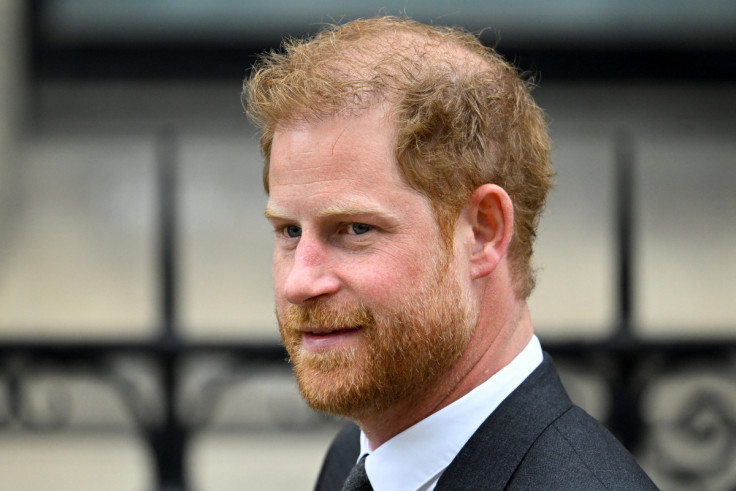US government has a week to decide whether to release Prince Harry's visa application
A conservative think tank has filed a legal complaint against U.S.A.'s Homeland Security over the royal's visa approval.

The United States of America's Department of Homeland Security only has until June 13 to decide whether they will release Prince Harry's US visa application to the public following a legal case brought against the department by a conservative think tank.
The Duke of Sussex's admission in his memoir "Spare" that he took illicit drugs during his partying years has raised concerns about how he was able to get a visa to the country given that past drug use is grounds for a visa denial. He admitted to having taken cocaine, marijuana, and magic mushrooms.
Washington-based The Heritage Foundation wanted details in the application released as it is of "immense public interest." The foundation filed a legal complaint under Freedom of Information laws in a bid to get the royal's visa application made public following his admission of past drug use in his memoir "Spare."
The think tank wanted to know "whether DHS properly admitted the Duke of Sussex in light of the fact that he has publicly admitted to the essential elements of a number of drug offences in both the United States and abroad."
The Heritage Foundation brought its query to court after the US Customs and Border Protection rejected its request under the reason that Prince Harry has not "consented to his information being released to plaintiffs." The first hearing held in a federal court in Washington lasted over an hour with Judge Carl J. Nichols telling DHS that it has until June 13 to decide whether to grant the group's request.
The organisation's legal counsel, Lawyer Sam Dewey, previously said that the public deserves to know if the Duke of Sussex declared his past use of illegal drugs when he applied for a U.S. visa, or if he was given preferential treatment because of his royal status.
He explained back in March, "We had a concern that Prince Harry had preferential treatment because there are certain grounds for inadmissibility into the country regardless of your visa applications; you can't come into the country without meeting certain criteria and one of them relates to drug use."
Dewey added, "We don't have royalty here but there's a sense of unfairness in taking your hereditary title and using it very directly to profit without engaging in public service."
The Heritage Foundation filed its legal case against DHS in May stating in court documents, "This is an action under the Freedom of Information Act to compel the production of information related to DHS's decisions to admit HRH Prince Henry Charles Albert David George of Wales, the Duke of Sussex, Earl of Dumbarton, and Baron Kikell K.C.V.O. ('HRH' or 'Duke of Sussex') into the United States and to allow him to remain to date."
The organisation likewise claimed that Prince Harry violated his own privacy when he shared about his past drug use in his memoir. Thus, invalidating privacy concerns as a reason for withholding details about his visa application.
Dewey likewise said as quoted by LBC, "We view it as a very serious question – why he's let in, no problem, given everything that we know, which we've explained in detail, and others aren't let in."
"The [US] government has taken the position that there's nothing to see here. We've taken the position that no, if you look through all the details of his admissions, you look at the drug laws, you look at the laws on admissions, there's a real serious question as to whether or not he should have been admitted."
It is unclear what type of visa the U.S.A. granted Prince Harry. He and his wife Meghan Markle, and their son Prince Archie, moved to the country from the U.K. after they left their royal duties in 2020.
© Copyright IBTimes 2025. All rights reserved.






















